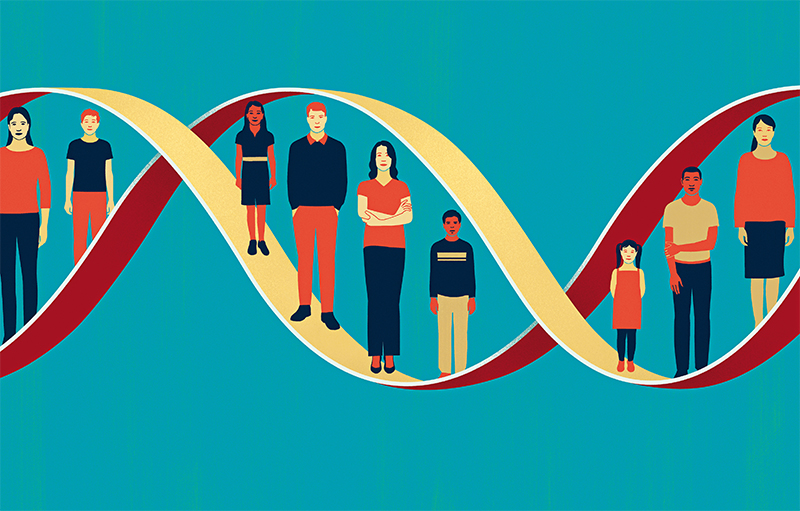
Home genetic testing kits can lead to fascinating discoveries about ourselves and our families. If you are wondering whether to try genetic testing at home, consider these questions before you swab.
-
- What are your testing goals? In addition to reporting ancestry and genetic propensities for certain personal or physical traits, some direct-to-consumer (DTC) tests are FDA-approved to report a consumer’s genetic predisposition to at least 10 different diseases*. This information potentially has health implications for the test-taker, as well as for future generations. If you are concerned about your family medical history or suspect you have a condition, skip the home test and find out if testing in the clinic would give you more actionable information.
- Are you concerned about data privacy? Data privacy is not usually guaranteed with home testing service providers. Technically speaking, DTC tests are not as comprehensive as a clinic-based test. The most important nontechnical difference between genetic testing in the clinic and at home, though, is having a clinician guide the process and discuss the results with you in a personalized and private way.
- Who is analyzing your sample? If you opt for the home DNA kit, make sure the samples will be processed by a Clinical Laboratory Improvement Amendments (CLIA)-certified lab. This stringent accreditation means any disease-specific results on a report are clinically confirmed and not just research. Without CLIA certification, a doctor or genetics professional will be unlikely to review the results for any healthcare discussion.
- How much risk can you tolerate? Everyone perceives and internalizes risk differently. One person might be devastated to discover he has a 5 to 7 percent chance of developing Alzheimer’s disease later in life. Another might be comforted to know she has a 93 to 95 percent chance of never having Alzheimer’s. Also keep in mind that while some diseases (like cystic fibrosis) are purely genetic, most conditions that have a genetic component are heavily influenced by lifestyle and environmental factors.
- What will you do with the information? DTC test results are not meant to be a diagnosis. In fact, most diseases cannot be diagnosed from genetic testing, period. But the report can be a good tool to help you start a broader and longer conversation about your health.
Everyone deserves to know about their genes, but the clinical usefulness of home genetic testing is still at a crossroads. No matter how and why you test, geneticists and genetic counselors are happy to explain the risks and realities in a way that resonates with you.
*The FDA has approved one DTC genetic testing company, 23andMe, to produce genetic health risk reports for Parkinson’s disease, late-onset Alzheimer’s disease, celiac disease, alpha-1 antitrypsin deficiency, early-onset primary dystonia, factor XI deficiency, Gaucher disease type 1, hereditary hemochromatosis, and hereditary thrombophilia.

Written by Elizabeth Fieg, MS, CGC
Brigham and Women’s Hospital




